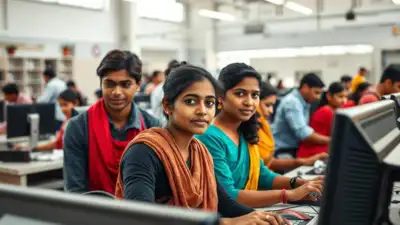NEW DELHI: India can boost employment in labour-intensive sectors by over 13% by 2030 through targeted investment in formal skilling, according to a paper by the National Council of Applied Economic Research (NCAER). The study argues for a multi-pronged policy push to improve workforce quality and bridge the country’s employment gap.The paper, titled ‘The Landscape of Employment in India: Pathways to Jobs’, highlights the critical role of skilled labour in accelerating job creation, particularly in manufacturing and services. “On the supply side, we show that increasing the share of skilled workforce by 12 percentage points through investment in formal skilling could lead to more than a 13 per cent increase in employment in labour intensive sectors by 2030,” the paper said, quoted PTI.Labour-intensive industries currently account for a significant share of employment—44.1% of manufacturing jobs and 54.2% of services sector employment, the paper noted.“Our demand-side simulations indicate that we can significantly bridge the employment gap by increasing the size of the manufacturing and services sectors, particularly through a focus on labour-intensive industries therein,” it added.The paper’s author, Farzana Afridi, emphasised the need for a “multi-pronged approach” to enhance production capacity and stimulate job creation, including higher government expenditure, tax cuts, and domestic demand stimulation.While analysing government initiatives, the paper cited a mismatch in the Production-Linked Incentive (PLI) scheme, pointing out that although it focuses on high-skilled, high-value sectors, the most jobs have been created in food processing and pharmaceuticals. “This reflects a mismatch between budgetary allocation under PLI and potential for employment creation,” the paper said.To maximise gains, the report recommends adopting global best practices, implementing national quality standards, and revamping education systems to improve human capital. It also suggests embedding digital literacy, ICT skills, and soft skills into vocational training to enhance employability.The study referenced the Future of Jobs Report 2025, which estimates that 63% of India’s workforce will need reskilling or upskilling by 2030 to stay competitive.“Improving training quality, along with increasing the share of formally trained workers, can lead to higher employment gains,” the paper concluded.





